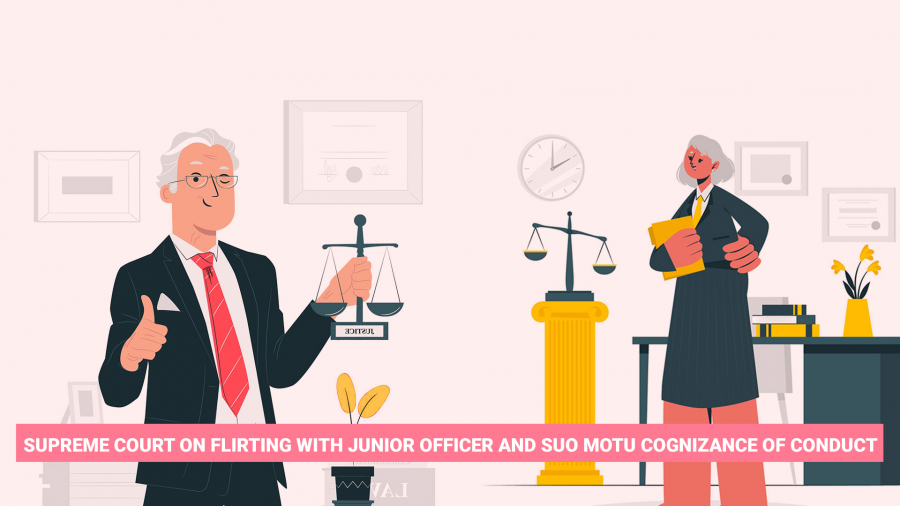While cases dealing with sexual harassment at workplace continues to surge, the Supreme Court on 16 February, 2021 observed that it is unacceptable to flirt with a junior judicial officer by a judge. In this case of Shambhoo Singh Raghuvanshi vs. The High Court of Madhya Pradesh, the judge has filed a petition against the judgment of Madhya Pradesh High Court (HC) which had decided to initiate an in-house departmental inquiry against him on sexual harassment charges.
The junior judicial official had alleged that the Judge had sent her flirtatious WhatsApp messages and the Senior Judge had admitted to the same. The courts had found the language and the specific words used in the said WhatsApp chat inappropriate looking at the status of the respondent as a Senior District Judge. Therefore, the HC had held to initiate departmental enquiry. However, the junior official had withdrawn her complaint. Thus, the Counsel for senior judge filed a petition in the Supreme Court stating that the disciplinary proceedings by High Court should not be maintainable after the withdrawal of the complaint. However, the Honourable Judges AS Bopanna and V Ramasubramaninan held that the withdrawal will not preclude the High Court from initiating separate departmental proceedings on its own.
The High Court is under the liberty, and it has a duty, to take cognizance of the conduct and take suo moto action. Although the counsel on behalf of the senior judge argued that the enquiry report had fundamental flaws, the Chief Justice of India (CJI) S A Bobde stated that it might be invalid in law but still can be considered as a piece of evidence in departmental proceedings.
The CJI concurred that the WhatsApp messages were quite offensive and improper and noted that “Right to departmental enquiry is an inherent right of the employer even if there is no provision in the service law”. Thus, the Three Judge Bench suggested the petitioner’s counsel to withdraw the petition and contest the disciplinary proceedings instead.
 Cart is empty
Cart is empty




Add a Comment